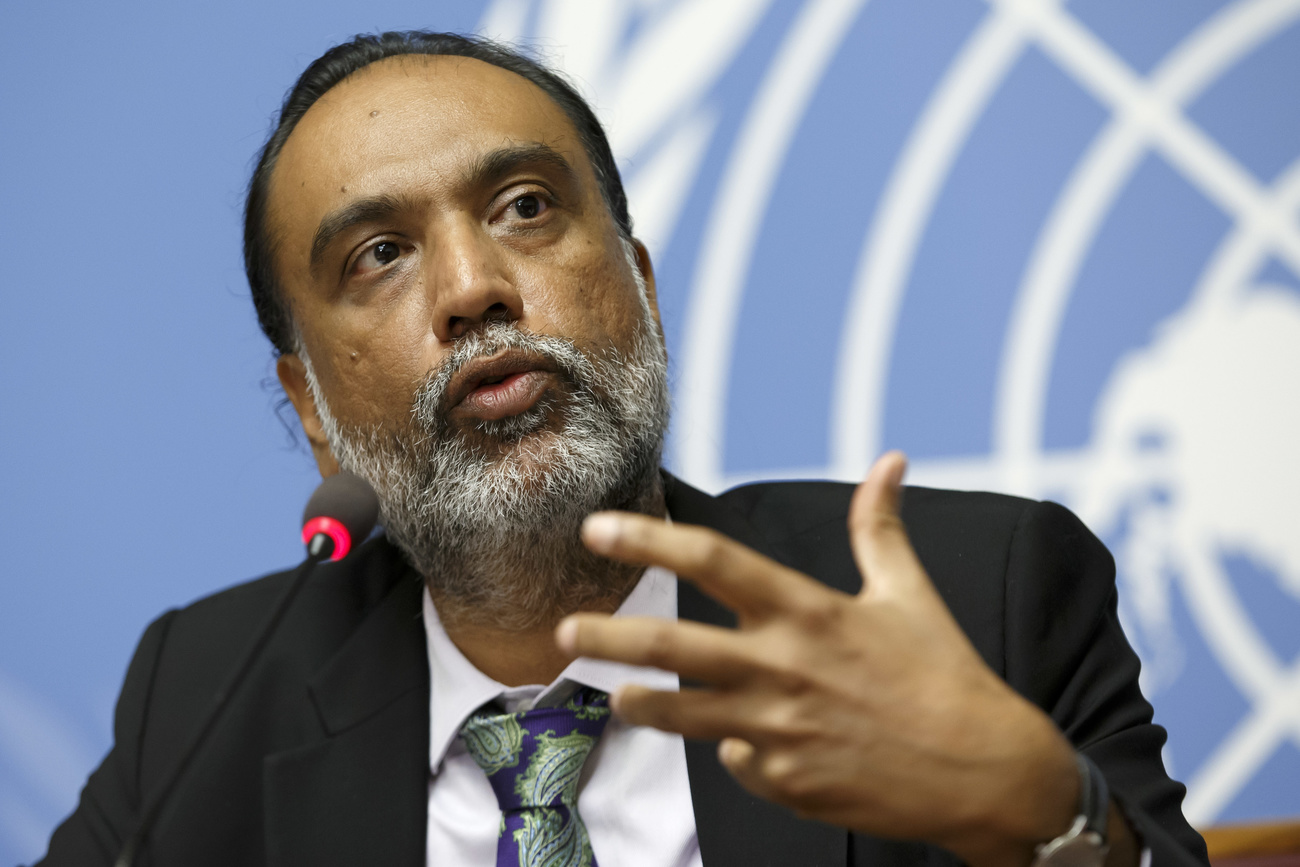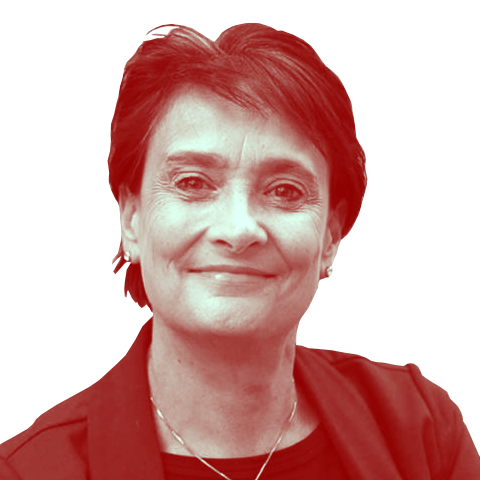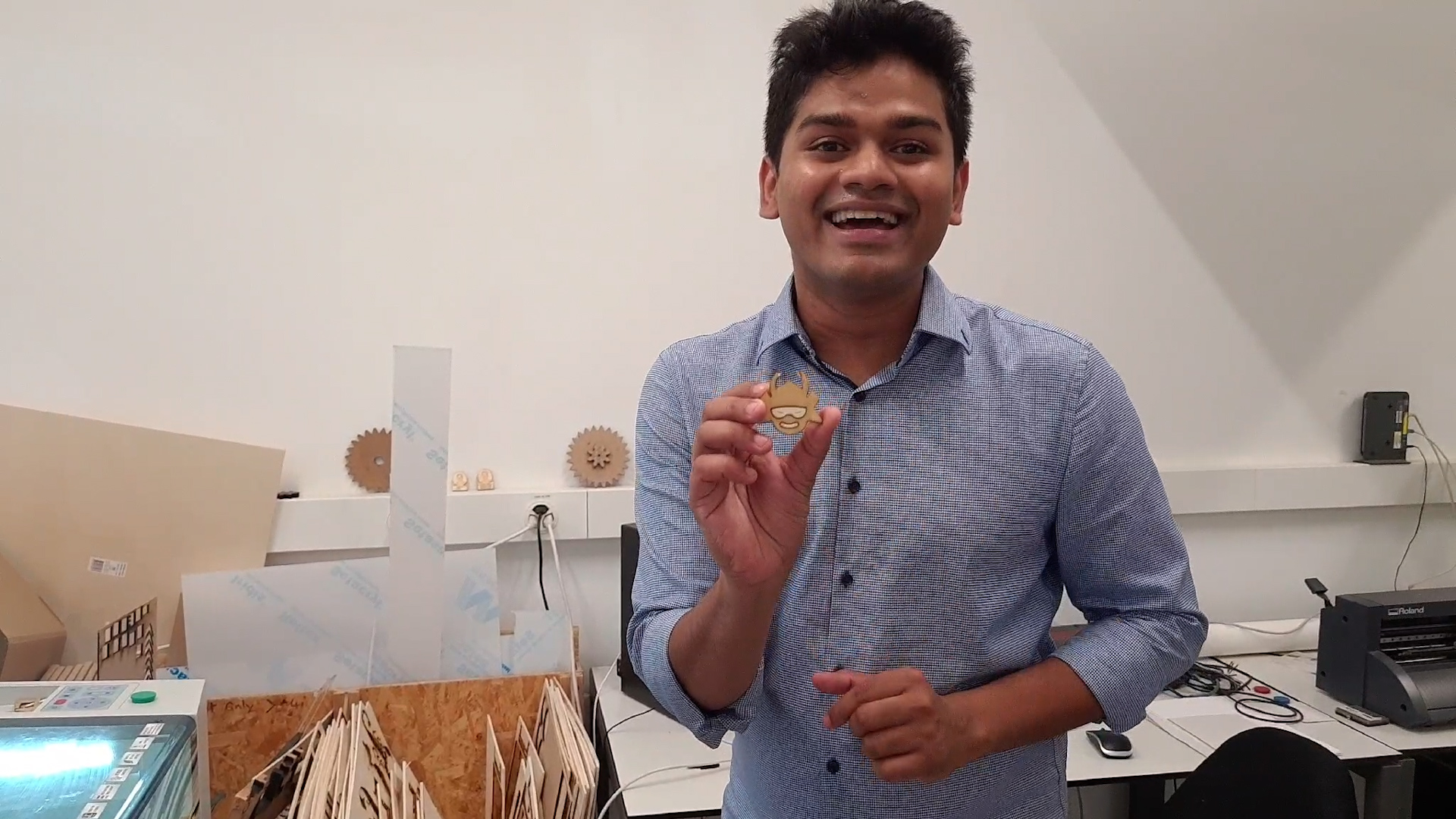‘If we stick to our traditional methods, technology outpaces policy’

Amandeep Gill, the United Nations’ new envoy on technology, is working with countries, companies, and NGOs to ensure digital technologies generate more opportunities than risks around the globe.
When we sat down to talk on a late afternoon in mid-July, Amandeep Gill was about to change jobs. His soon-to-be old office at the Maison de la Paix, home of the Geneva Graduate Institute, was nearly empty. Only a couple of boxes full of books crowded the room. On Monday, July 18, Gill started work as the new United Nations (UN) envoy on technology in New York.
The UN secretary general António Guterres himself appointed Gill to lead the UN into the digital age. And while Gill is not technically the first UN tech envoy ever (the job was created in 2021, but the terms of his two predecessors were either cut short or temporary), almost everything remains to be done. The task facing Gill and his office may seem daunting, but the new envoy is confident. “I’m excited of course, I’m honoured as well. I’m not nervous, this is something that I’ve been practising for a while,” he says.
Amandeep Gill is originally from India, where he studied electronics and electrical communications. He joined his country’s diplomatic service in 1992 and was posted to Tehran and Colombo, before moving to Geneva in 2016 to serve as India’s ambassador and permanent representative to the UN Conference on Disarmament.
Between 2018 and 2019, he co-led the UN High-level Panel on Digital Cooperation, which, together with governments, the private sector, civil society, and others, identified ways to improve international collaboration in the digital space.
Since 2019, until his appointment as tech envoy, Gill was CEO of the International Digital Health & AI Research Collaborative (I-DAIR), which aims to facilitate international collaboration on the responsible R&D of artificial intelligence (AI) and digital technologies for health.
Gill also chaired UN negotiations on lethal autonomous weapons systems and helped draft a UNESCO recommendation on AI ethics.
An engineer and a diplomat, Gill has worked himself into a unique position. He illustrates the diversity of the so-called international Geneva ecosystem, where a group of experts is as likely to negotiate a ban on killer robots as to discuss how artificial intelligence can help diagnose cancer early. Since arriving in the Swiss city in 2016, Gill has in fact been involved in all these discussions, and more.
Focal point for technologies
As digital issues rose to the top of the agendas of governments worldwide, Gill says it was “natural for the UN to think about a focal point” – the UN envoy on technology – for keeping track of technological developments and their impact on the organisation’s work, whether it be on peace and security, human rights, or development. But he also points out that the digital world, unlike the physical one, knows no frontiers. Making sure digital technologies benefit the entire world, or preventing their misuse, requires international collaboration, a job for the UN and its new envoy, says Gill. “The UN is the premier institution in the international community for multilateral collaboration. It’s the most universal forum, where every country has a voice, and it can perform that neutral convening role.”
Talking about his time in Geneva, the new tech envoy says he has learned to look beyond “traditional ways of advancing norms”. The tools of international cooperation, such as treaties and conventions, are great ways to reach agreements between multiple parties but require a lot of time. “In the digital world, things move at a very fast pace. If we stick to our traditional methods, technology outpaces policy,” says Gill. According to him, there is a need to be more flexible, to anticipate more, and to rely on a mix of soft and hard norms – for example, non-binding recommendations and legally binding treaties. It is also key, he says, to include voices from outside the political and diplomatic realms, such as civil society and the private sector. “We need in particular to engage the tech community because they are the ones building technology. And often, they don’t mean harm, but they don’t understand all the consequences.”
Shared principles
A new governance tool could come out of the Summit of the Future, a conference set to take place in New York next year, and in which the 193 member states of the UN are expected to participate. It would take the form of an agreement, called the Global Digital Compact, that António Guterres hopes will outline “shared principles for an open, free and secure digital future for all”.
The new technology envoy argues that this document is urgently needed. As he points out, there is today no single, shared approach to governing digital technologies. While some countries, such as China recently, or the European Union, have adopted top-down legislation, others, such as the United States, have let the private sector drive regulation through industry standards. This dichotomy is confusing to many countries “that are struggling to manage the digital transformation,” says Gill, who hopes that the compact becomes “the document of reference” for managing the digital shift.
“Having a common vision, a common understanding; clarity on what could be potential problems, what are different opportunities, sends a signal to governments, to private sector investors about certain areas of action, certain good ways of deploying digital technologies,” Gill says. This is especially important, he says, as the world is falling behind on the UN’s 2030 Agenda for sustainable development.
But Gill does not see the Compact agreement as an end. Rather, he hopes that it serves as a basis for the organisation of regular meetings at the UN involving member states, but also other actors from the digital field – from private companies to academics, and civil society members. The “soft pressure” of being under the scrutiny of others would help ensure that “those principles, the aspirations and properties of the compact are understood, they are applied, and if there are difficulties, then we can discuss how to address those,” he says.
Challenges
Of course, Gill knows that digital technologies raise a lot of challenges. Social media companies, for example, with their opaque algorithms, have in recent years been used to influence elections, and to strengthen the repression of authoritarian governments. But they have also given a voice to people that otherwise would have had none. The use of digital technologies by governments sometimes poses problems too. Facial recognition, for example, can be used to reunite missing children with their families. But the same technology, can also be used to profile ethnic minorities and undermine their human rights.
“That delicate balance is where the UN plays a role,” says Gill. As a neutral intermediary, the UN can point out risks, potential harm. “And this is not about the ideological orientation of different countries, it’s a matter of human rights […] so the UN has a critical role in putting the spotlight on these issues,” says Gill, who adds that the UN must work with governments, but also the private sector and civil society to ensure the digital space is “inclusive” and “safe for everyone.”
‘Human-centric’ technologies
Gill says it is impossible to single out one issue his office should prioritise. “You have to cultivate a diverse garden in this space.” With different countries being at different stages of their digital transformation, their needs and challenges vary greatly.
According to the UN, close to half of the world’s population, most of them women and people in developing countries, remains offline. Unable to work or learn virtually, the unconnected have been particularly affected by the Covid-19 pandemic. Closing the digital divide for them is a priority. In the meantime, developed countries are grappling with data privacy issues and the ethical dilemmas of letting machines make increasingly complex decisions.
But on a personal level, the new tech envoy concedes that the metaverse – virtual worlds, for example, social networks based on virtual reality – worries him, especially in terms of privacy, human rights, and human agency. “How much time do we spend looking at real-world problems, our analogue problems, versus how much time do we spend in fantasy? There may be societal shifts that we may not have thought enough about,” says Gill, who adds that thinking about these risks does not mean forgoing the innovation and commercial potential of this technology.
In the future, Gill hopes to see countries launch initiatives that pool digital resources – data sets, algorithms, etc. – to progress on UN Sustainable Development Goals (SDGs) related to, for example, health, food security, or the green transition. Gill also hopes that there will be a shift to a more “human-centric” approach to technologies, in which humans retain “their dignity, their agency, their rights.”
“Looking back in the future, if we can say ‘ah, there was a turn, there was a realisation that we need more human-centric digital technologies and we need to be careful about loss of human agency,’ I’d be happy.”
Edited by Imogen Foulkes

In compliance with the JTI standards
More: SWI swissinfo.ch certified by the Journalism Trust Initiative







You can find an overview of ongoing debates with our journalists here . Please join us!
If you want to start a conversation about a topic raised in this article or want to report factual errors, email us at english@swissinfo.ch.